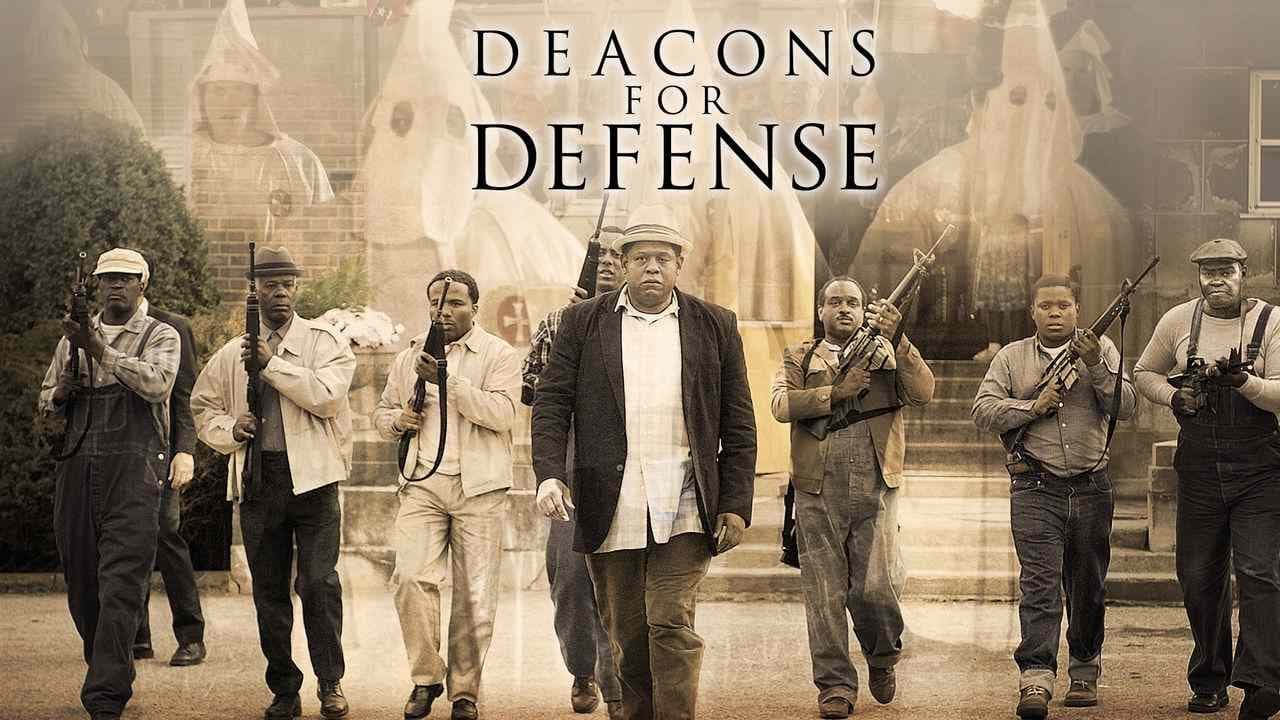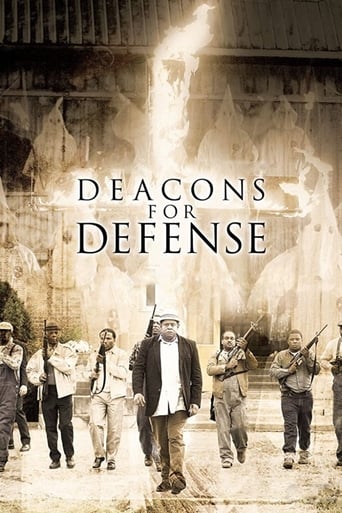



Best movie of this year hands down!
Great example of an old-fashioned, pure-at-heart escapist event movie that doesn't pretend to be anything that it's not and has boat loads of fun being its own ludicrous self.
View MoreThis film is so real. It treats its characters with so much care and sensitivity.
View MoreLet me be very fair here, this is not the best movie in my opinion. But, this movie is fun, it has purpose and is very enjoyable to watch.
View MoreThe only nitpick I have with this film is that it is obviously NOT filmed in Bogalusa, LA. It also does not show the poverty of African Americans who lived and worked there - one gets the impression the blacks there were leading perfectly cozy middle class lives, save for racial segregation and oppression. These folks did not live in 3 bedroom nicely decorated, cozy homes. They live in what amounts to shanties and the poverty there is third world. Bogalusa is not some idyllic looking, charming small town. It is a very depressing, gloomy place, centered around a paper mill which smells horrible (and you can smell it all over town). By not showing this it disconnects racial oppression from how bad the economic oppression was (and still is), and it's always there.Other than that, the Deacons rock, and predated the Panthers by several years.
View MoreI was born in Bogalusa, Louisiana (the lumber town depicted in "Deacons for Defense") and lived through the events depicted in this movie. I can attest to the fact that it is very factually recounted. The tension between the blacks and the whites during that time were very high and emotionally charged. As a child I was taught by my Klansman father that black people were to be hated. For whatever reason that never really rang true to me and I refused to hate. It's so strange to look back objectively on a movie like this that reopens those old wounds. It's about the black citizens of Bogalusa who form a group intending to protect themselves from the bigotry that envelops the city and the tough choices they had to make going into this situation with little or no backup from the city police or the elected politicians in the area. It's really a very good movie.
View MoreIn 1964 and 1965, Lyndon Baines Johnson signed important legislation abolishing segregation. That doesn't mean that Southern communities were willing to let go of their Jim Crow laws, and civil rights demonstrators knew this for a fact. But not everyone was willing to lay down dying and begging for mercy they never would've had from white supremacists in the fight for equality. Knowing this, some black men were willing to arm themselves and retaliate against Klan violence, and this movie is about one such group of black war veterans who choose to do so.Forrest Whittaker plays Marcus Clay, a middle-aged black man working at a paper mill in Bogalusa, Louisiana. For some reason, most of the white folks think they can rely on him to keep other African-Americans from seeking equality, whether it involved making sure other black co-workers don't seek a promotion, or keeping his determined teenage daughter from join the CORE voting drive. When she's attacked by the police during a civil rights march, he finally decides to take action against them, and when he takes her home to reprimand her, she makes him realize that in the eyes of whitey, he's no better than any other person of color. That's when he decides he's going to team up with his neighbors, congregation, and fellow employees and form their own anti-KKK militia.Unlike the Black Panthers who's membership consisted of a mix of young atheists, Marxists, and Muslims in paramilitary uniforms, the Deacons were middle-aged and old men who were as patriotic as any other American, and were just tired of being punished for seeking their fair share in life. They're also not intimidated by the fact that the boss of the mill is also an Exhalted Cyclops of the local KKK chapter, and neither is the C.E.O., who demands that they give-in to demonstrators and end their discriminatory hiring practices. Throughout the movie the local civil rights organizers played by Jonathan Silverman & Adam Weiner make it clear they want nothing to do with the Deacons. After all, they're about non-violence, and the Deacons are about violent retaliation. Eventually, they realize they may need them no matter how much they oppose their principles. The movie switches from color to black and white, as you'd expect, and occasionally uses footage from more famous civil rights marches like Birmingham and Selma, Alabama, but this can be forgiven. There are times you'll swear it's about to go into a heroic martyrdom cliché, but it doesn't. One foreman/Klansman sniper keeps trying to get a shot at Marcus, but loses the chance to do so. Even the showdown at the end doesn't result in the death of any black or white men. And I wouldn't DARE reveal anything else about the ending. Rent this movie, buy this movie, or demand that your local video store make multiple copies available, because this is much too good for anybody to ignore.
View MoreThis excellent made-for-cable movies tells the story of a group of blacks in a small mill town who form a defense group to protect themselves from the brutality of the Klan during the dawn of The 1964 Civil Rights Act. The fact-based story centers around the main character played by Forest Whitaker (who gives his best performance in years) who was arrested and beaten by racist cop for protecting his daughter from being beat during a peace demonstration that turned ugly. After that you see his character transform from a "good nigger" who thought he knew his place to a man who realized that his dignity and family were more important than "yes sah-in'" and "no sah-in'" to the racist white townfolks. There's also good turns from Ossie Davis (I don't think this man has ever given a bad performance) and Jonathan Silverman (quite surprising), but the film clearly belongs to Whitaker. A place in American history that has gotten forgotten and buried over the years. A must-see for history buffs.
View More